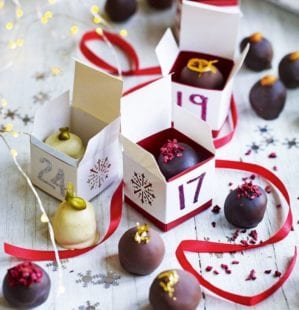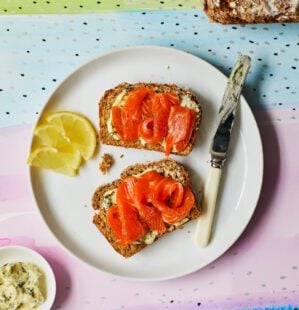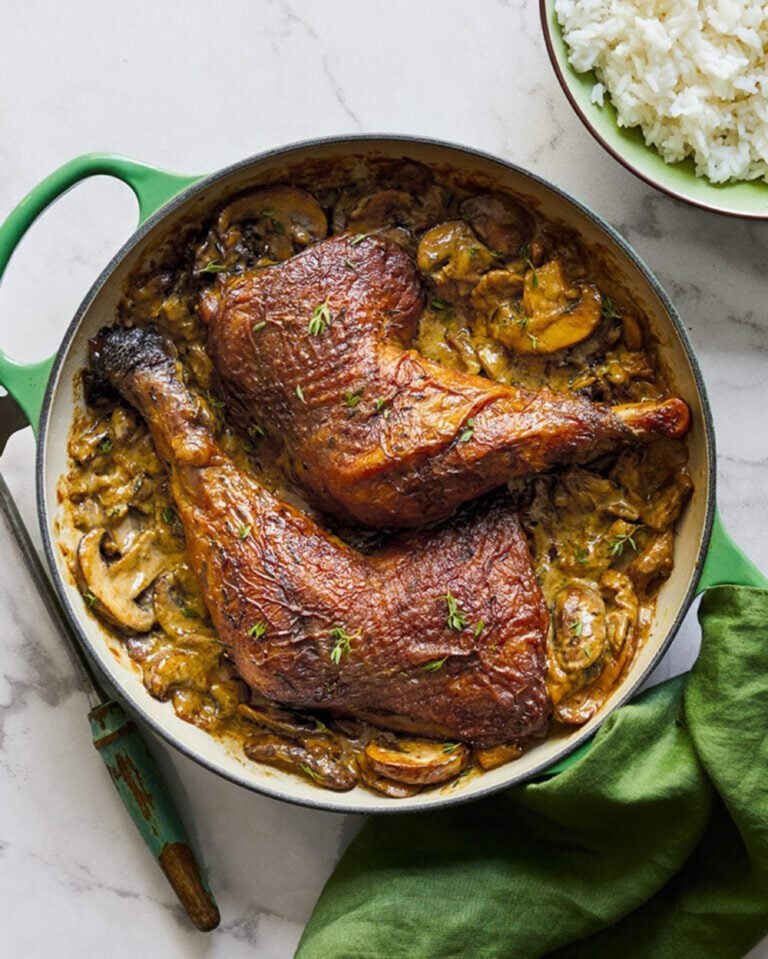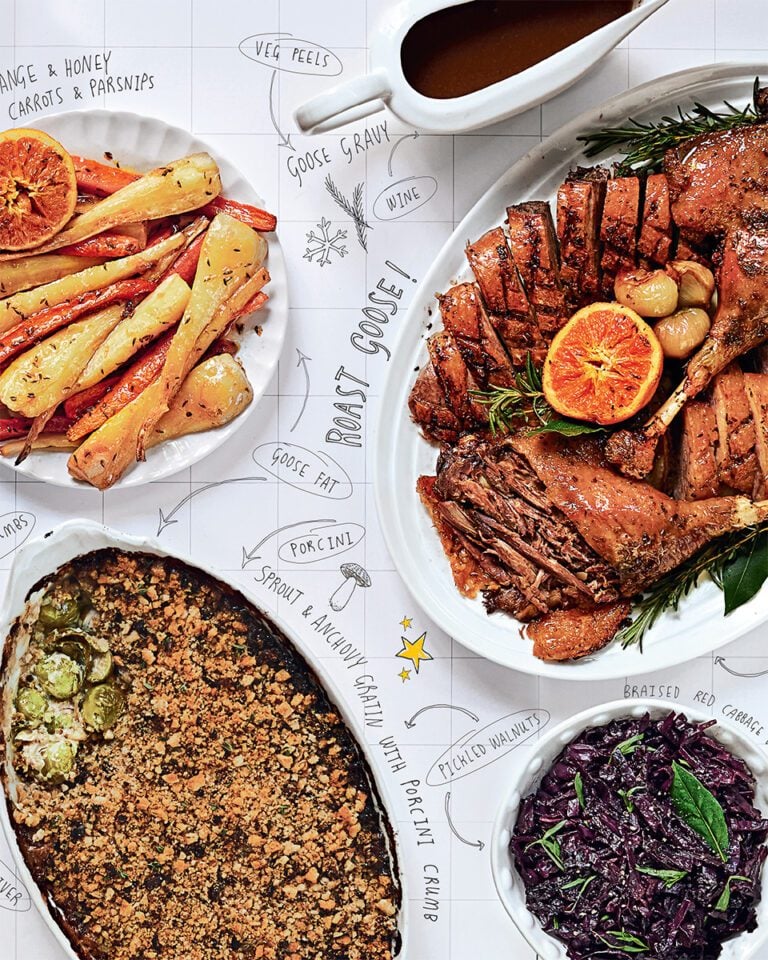12 delicious ways to have a greener Christmas
With a little creativity and planning, you can not only wow your guests this year but you can also have a more eco-friendly Christmas. The delicious. food team’s Emily Gussin shares her savvy ideas for having a more sustainable festive season, including cutting food waste and canny recipes for a more considered Christmas.
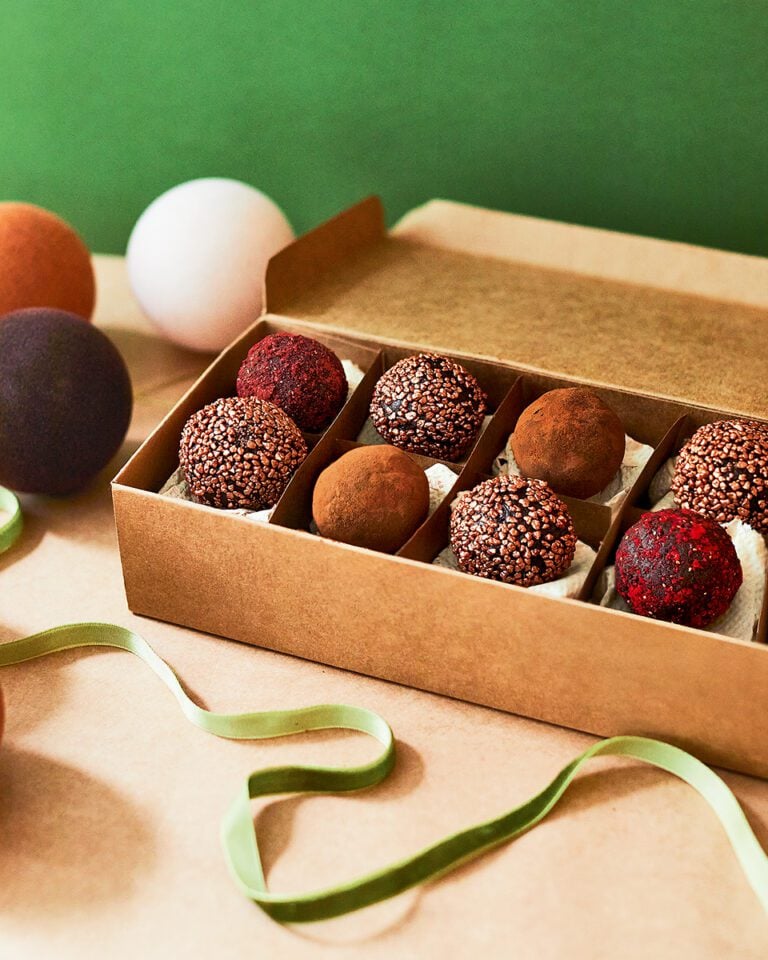
1. Shop small
We all love the convenience of a supermarket but shopping in small, local businesses for your Christmas food is a great way to cut down on food miles and support local suppliers with traceability. See if your nearest farm shop takes Christmas orders and speak to them about the best day to visit to pick up vegetables. You’ll be able to find out exactly where the meat and veg you buy comes from. If you don’t have a suitable shop nearby, order online through a veg box scheme with special Christmas deliveries, or a meat supplier that’s committed to responsible farming.
2. Make your own crackers
Did you know you can make Christmas crackers using the cardboard tube from a toilet roll? This resourceful, money-saving trick has been a Christmas tradition in my household since I was a child. My sister and I help my mum make the crackers for our (very large) extended family on Christmas Eve. You’ll need some snaps (from a party store or easily found online), the toilet
rolls, individually wrapped chocolates or sweets, jokes written on a slip of paper, your gift of choice, some recyclable wrapping paper (something relatively light) and some ribbon. Put the snap through the toilet roll tube so it sits centrally, then fill the tube with your joke and gifts. Wrap the tube in paper
that’s slightly longer than the snap, then tie some ribbon at either end of the toilet roll tube to seal and make handles for the cracker. As you’re making them yourself, you can personalise the contents of each cracker for the guests at your table.
3. Cook with British trout
With concerns about the environmental issues of salmon farming, and celebrity activist Chris Packham recently urging shoppers not to buy farmed salmon, it’s worth considering swapping this festive favourite for another fish. UK freshwater trout has been rated ‘best choice’ by the Marine Conservation Society and its similar firm, oily texture and taste make it the obvious alternative. Try making these trout and beetroot rösti canapés, for your Christmas get-togethers.
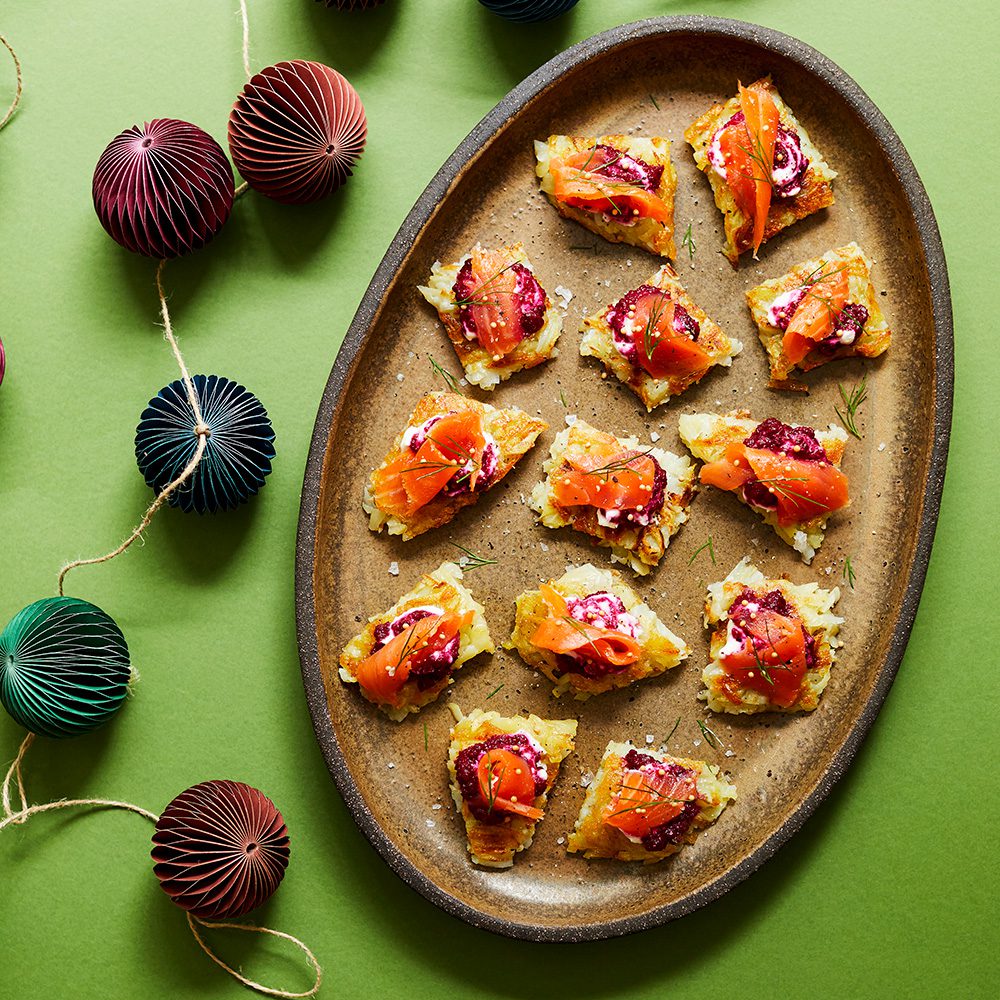
4. Cut down on single-use plastic
If you’re still clinging on to cling film, this festive season is the perfect time to try to reduce your usage. Instead use beeswax wraps to cover ingredients or wrap pastry dough, move food into containers to store in the fridge or simply cover a bowl with a plate. Washed leftover jars and tubs from jam, beans and peanut butter are a free storage solution, or you can buy reusable food bags that go in the dishwasher. I also recommend silicone liners for your cake tins – using them again and again, you’ll save on waste and will never have to faff around cutting baking paper to size again!
5. Keep ingredients seasonal
Christmas is a time for abundance, but choosing ingredients that are in season in the UK and Europe only is an easy way to be more eco-friendly. Root vegetables and brassicas are at their finest, British apples and pears are plentiful, and winter is peak citrus season in Spain and Italy. If you want your Christmas spread to include out-of-season favourites like green beans or
berries, look to the freezer aisle. Frozen when they’re in season, they’ll taste much better than the ones flown over in December.
6. Make the most of your turkey
The big bird is the centrepiece for most Christmas dinners but, for those less confident, turkey crowns or rolled joints are a convenient option. Unfortunately, this can mean the turkey legs are wasted – it’s estimated that 14 million go to waste each year! If you usually opt for a crown, go for a whole bird this year and remove the legs to cook separately. Cooking them low and slow using our turkey confit recipe leaves the meat meltingly tender – it will soon become your favourite part of Christmas. There are plenty of other ways to get more from your turkey such as using the carcass to make stock or soup, saving the fat from your roasting tin to make incredibly flaky scones, and crisping up leftover skin to use as a crunchy topping for pasta.
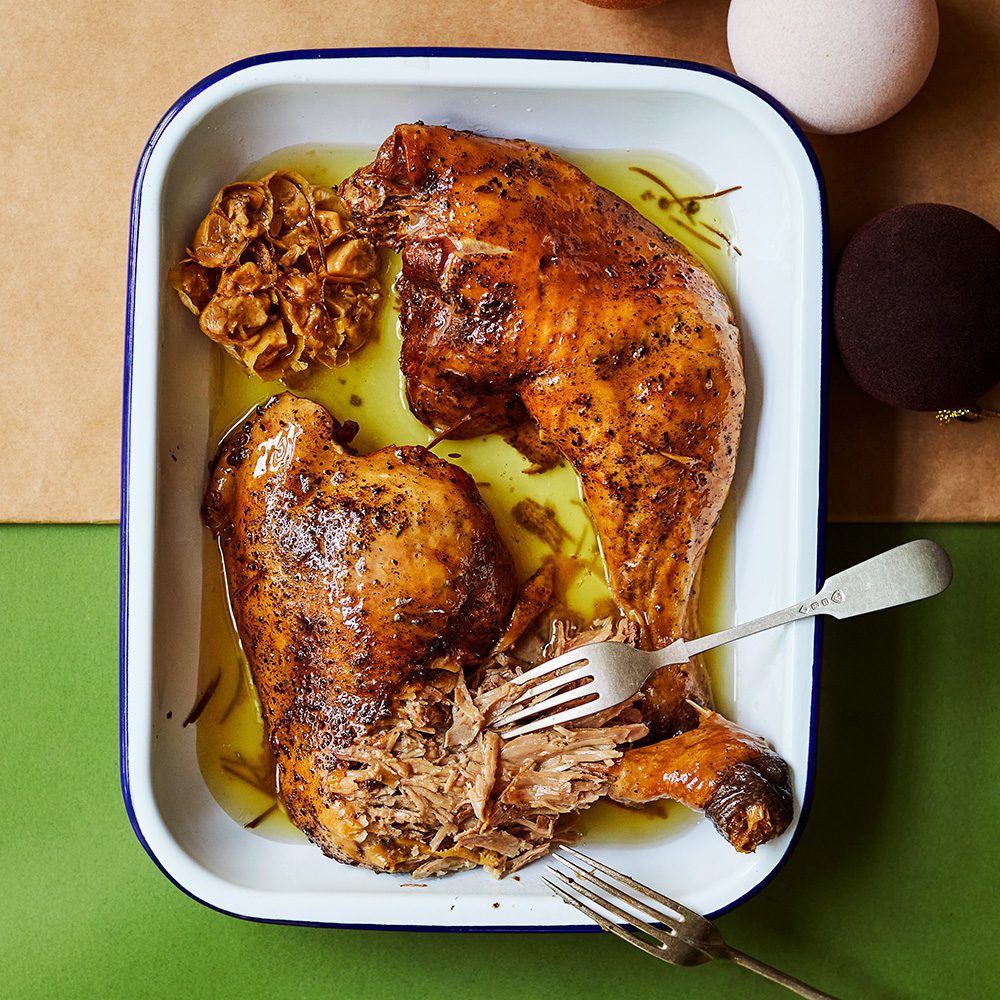
7. Think inside the box
Perfect for party season, bag-in-a-box wine usually holds 2.25 litres (the equivalent of 3 bottles). The lighter packaging means boxed wine has a lower carbon footprint and it’s still recyclable: the cardboard box can be recycled at home and supermarkets will take the bag. Plus, the bag and tap technology will keep your wine fresh for up to 6 weeks after opening. Our wine expert Susy Atkins likes Asda’s Extra Special Pinot Grigio (£17.95 for 2.25 litres) for parties.
8. Love your leftovers
Arguably the best part of Christmas Day is the leftovers! Sandwiches, pies and curries are a great way to use up all the bits and bobs left in your fridge. Take a look at 70+ ideas in our Christmas leftovers recipe collection.
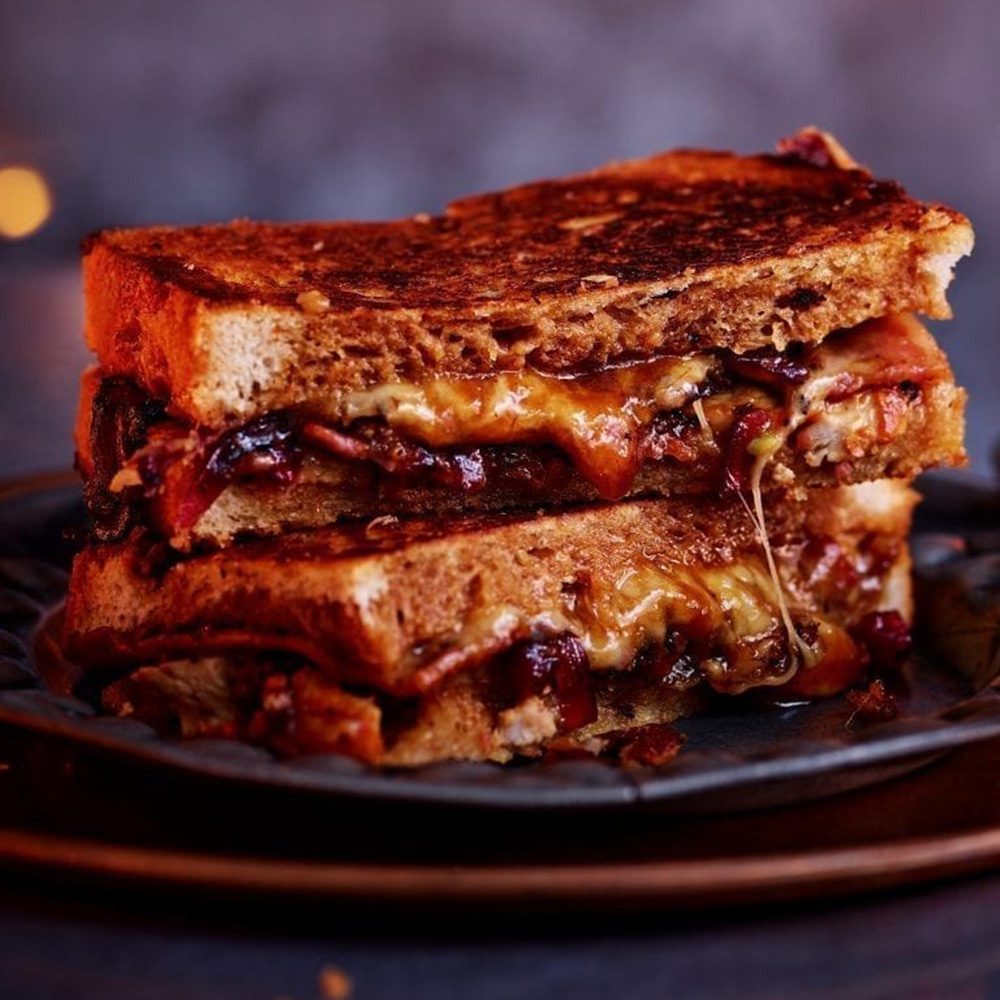
9. Go electric
If you’re upgrading your oven, consider switching from gas to induction. Electric cooking appliances like air fryers are not only more energy-efficient but also better for your health. This year the Global Cooksafe Coalition raised awareness of the health impact of toxic gases from gas cookers being released into kitchens. Browse our Christmas air fryer recipes, including roast potatoes.
10. Go big on veg
We all know that reducing our meat consumption is better for the planet, but you don’t have to go vegan to have an impact (though we have plenty of festive vegan inspiration). Take a more flexitarian approach to Christmas by going the extra mile with a veggie centrepiece (like this stunning vegetarian filo wreath) and side dishes rather than buying excessive amounts of meat.
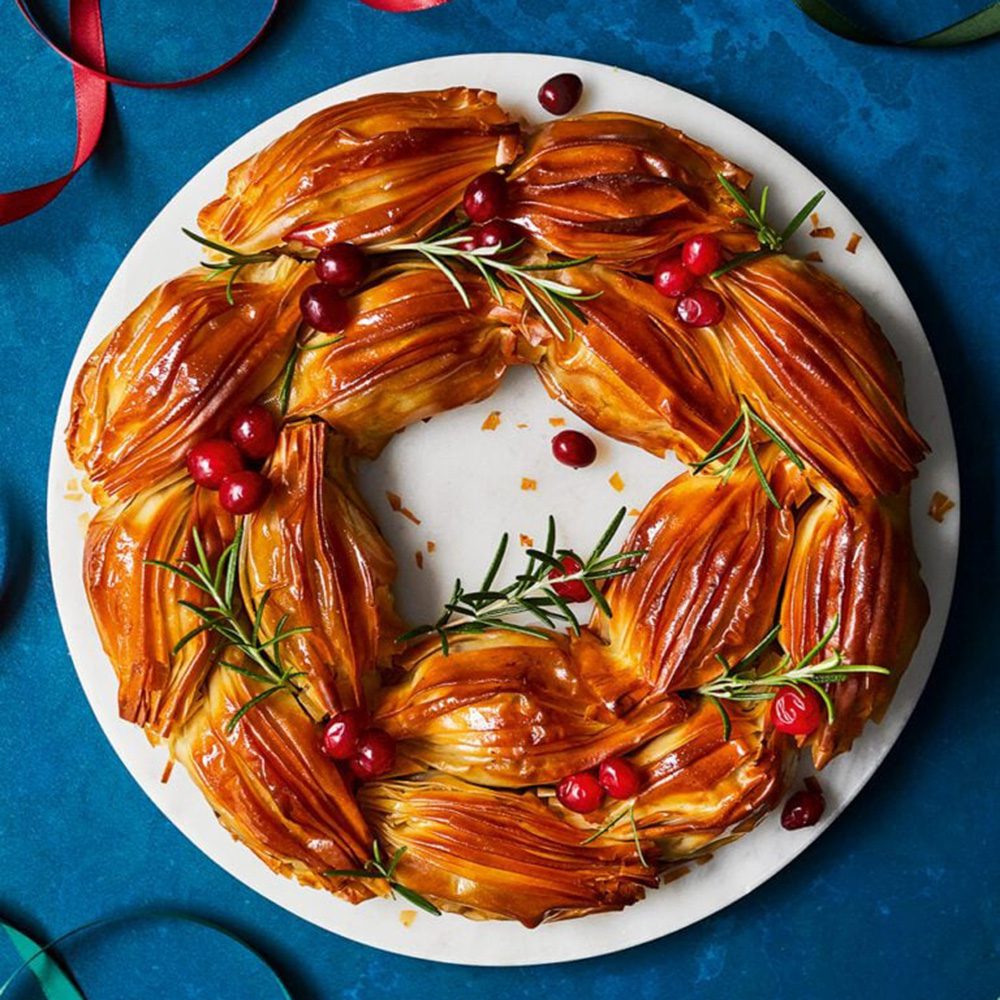
11. Forage for foliage
Decorate your table with greenery and flowers collected from your garden or on a walk. Instead of floral foam, which can’t be recycled, use small vases or a deep baking tray with a wire rack on top as a base for your arrangement. Add water to the tray to keep the foliage fresh and thread stems through the gaps in the wire to stand them upright.
12. Make your own advent calendar
A daily treat from an advent calendar builds the anticipation for Christmas, but the sometimes-excessive packaging is less fun. Why not make your own? You could stitch one with fabric or decorate small boxes to use again and again, adding your choice of treat each year. This chocolate truffle recipe is ideal as it’s made with condensed milk rather than cream, so you can keep it at room temperature during the countdown.
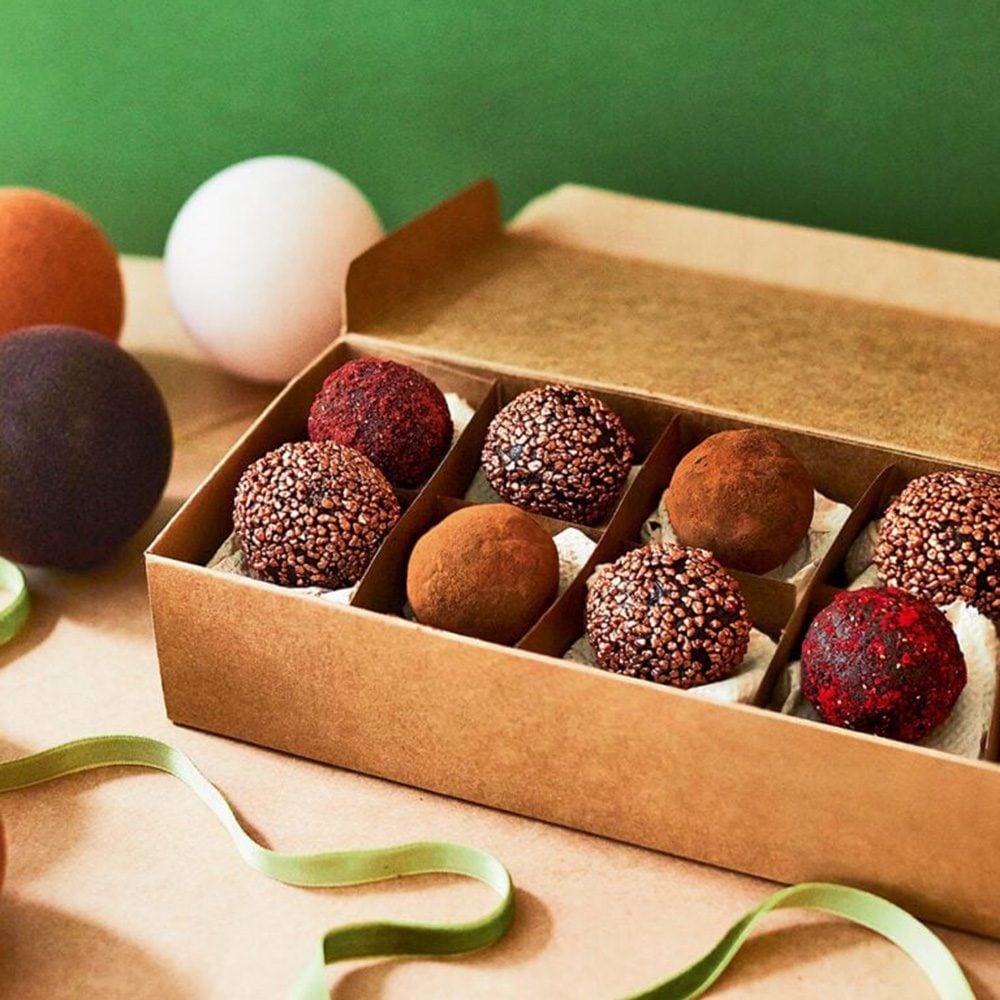
For more festive eco ideas, check out Emily’s complete guide to cooking a zero-waste Christmas dinner.
Subscribe to our magazine
Food stories, skills and tested recipes, straight to your door... Enjoy 5 issues for just £5 with our special introductory offer.
Subscribe
Unleash your inner chef
Looking for inspiration? Receive the latest recipes with our newsletter
